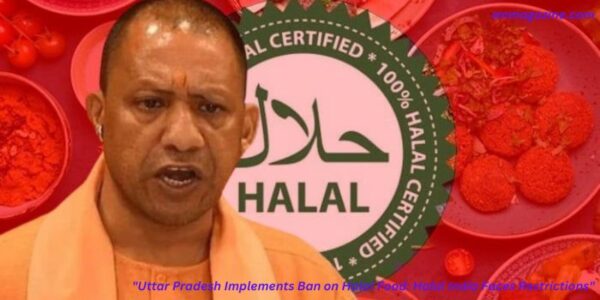Uttar Pradesh Implements Ban on Halal Food: India Faces Restrictions

Uttar Pradesh Implements Ban on Halal Food: India Faces Restrictions

Uttar Pradesh Implements Ban on Halal Food: India Faces Restrictions
In response to the prohibition of Halal Food -certified goods in Uttar Pradesh, the Supreme Court granted temporary immunity from coercive action to elected officials of Halal India Limited and Jamiat Ulama Maharashtra on Monday.
Initially, on January 5, the Supreme Court had rejected their plea for temporary protection against arrest in connection with their petitions challenging the constitutionality of the notification that banned the production, distribution, sale, or storage of halal-certified food products in the state, with exceptions for goods intended for export. On January 25, Mahmood Madani, the president of Jamiat Ulama-e-Hind Halal Trust, received protection from the court after petitioning to overturn the ban.
Also Read: well health tips in hindi wellhealth
Upon learning of this development on Monday, a bench comprising Justice B. R. Gavai and Sandeep Mehta decided to provide relief to both Jamiat Ulama Maharashtra and Halal India Limited. Halal India Pvt. Ltd., a company promoting itself as a globally renowned halal certification supplier, labeled the notification as an attack on Muslims. It argued that the notice issued on November 18, 2023, by the Uttar Pradesh-based Office of the Commissioner, Food Safety and Drug Administration, would impact interstate commerce and have nationwide implications.
Halal India Pvt. Ltd. contended that the notification unfairly targeted Islamic practices, affecting religious practices, public health, and ultimately infringing on religious freedom. Halal Food The company argued that other religious practices had not received similar consideration. The trust provided all necessary documents to the police, as stated by advocate MR Shamshad, but the police insisted on a personal appearance by Mahmood Madani.
Last week, senior advocate Raju Ramachandran informed the Supreme Court that the police had requested the individual presence of those managing Jamiat Ulama i-Maharashtra and Halal India Limited. The matter was scheduled for Monday at his request.
Petitions challenging the UP government’s ban on halal-certified food products were filed by Halal India Limited and Jamiat Ulama e-Maharashtra. The ban, effective from November 18, 2023, was based on allegations that these organizations were deceptively certifying products as halal, using falsified paperwork and lacking legal support.
The Halal Food India petition argued that the UP notification selectively prohibited citizens adhering to Islamic culture from consuming halal-certified products, impacting their dietary and lifestyle choices.
Also Read: wellhealthorganic vitamin b12